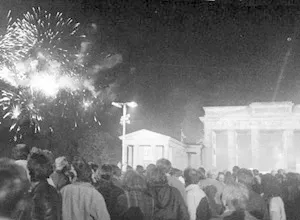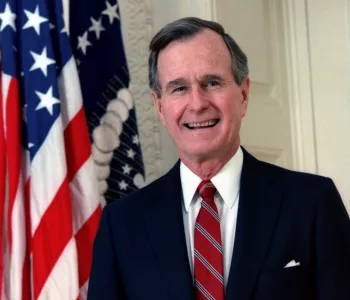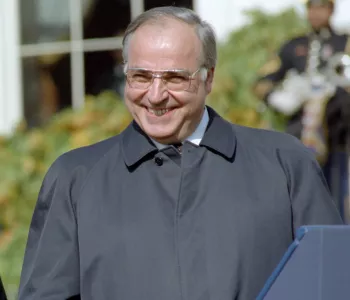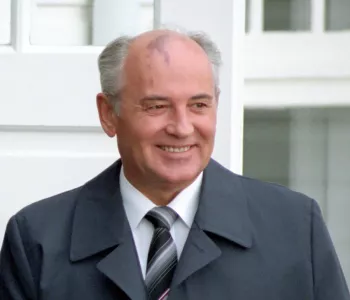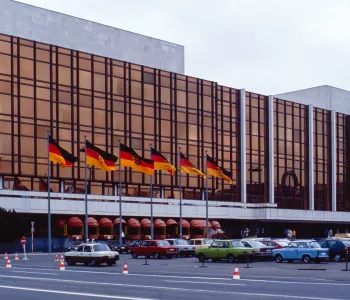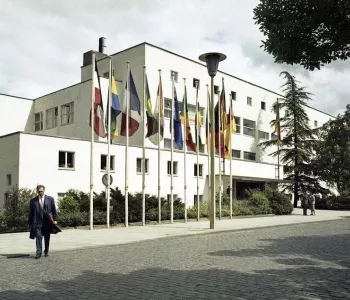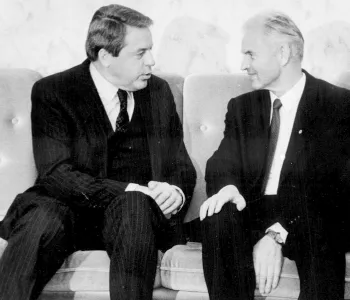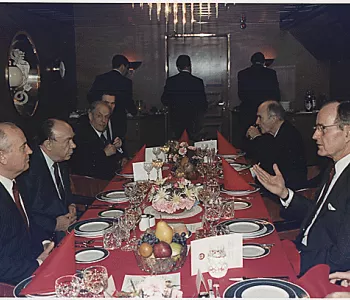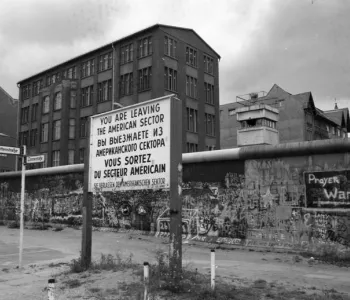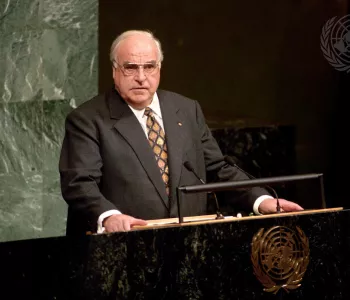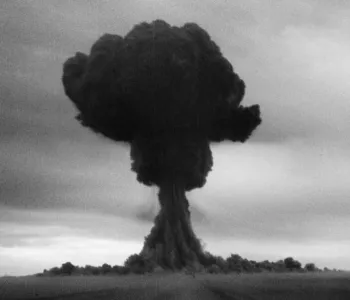In 1990, following the fall of the Berlin Wall and the collapse of the Socialist Unity Party (SED), East and West Germany reunited as the enlarged Federal Republic of Germany. See also the collections on the Berlin Wall, the End of the Cold War, and Austria and German Unification.(Image: Brandenburg Gate, Unification Ceremony, Fireworks. 3 October 1990. Bundesarchiv)
